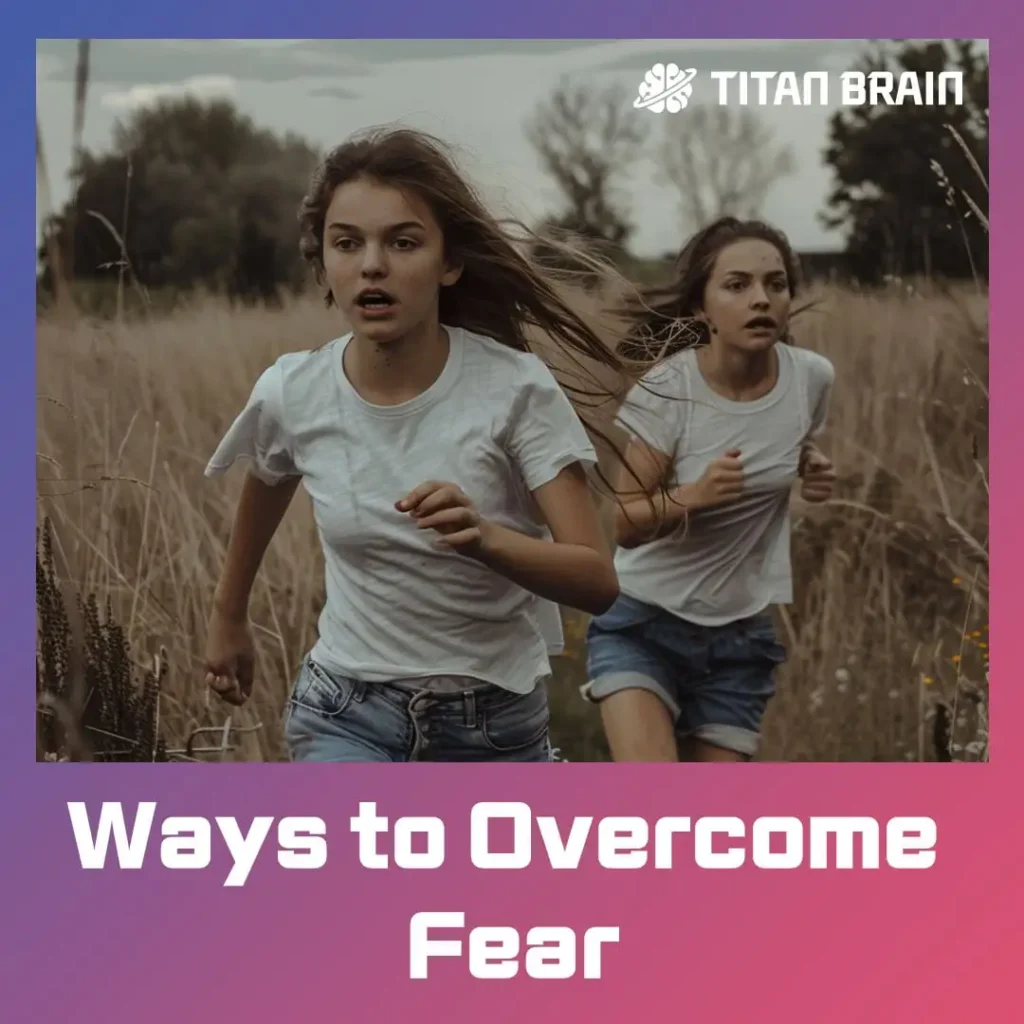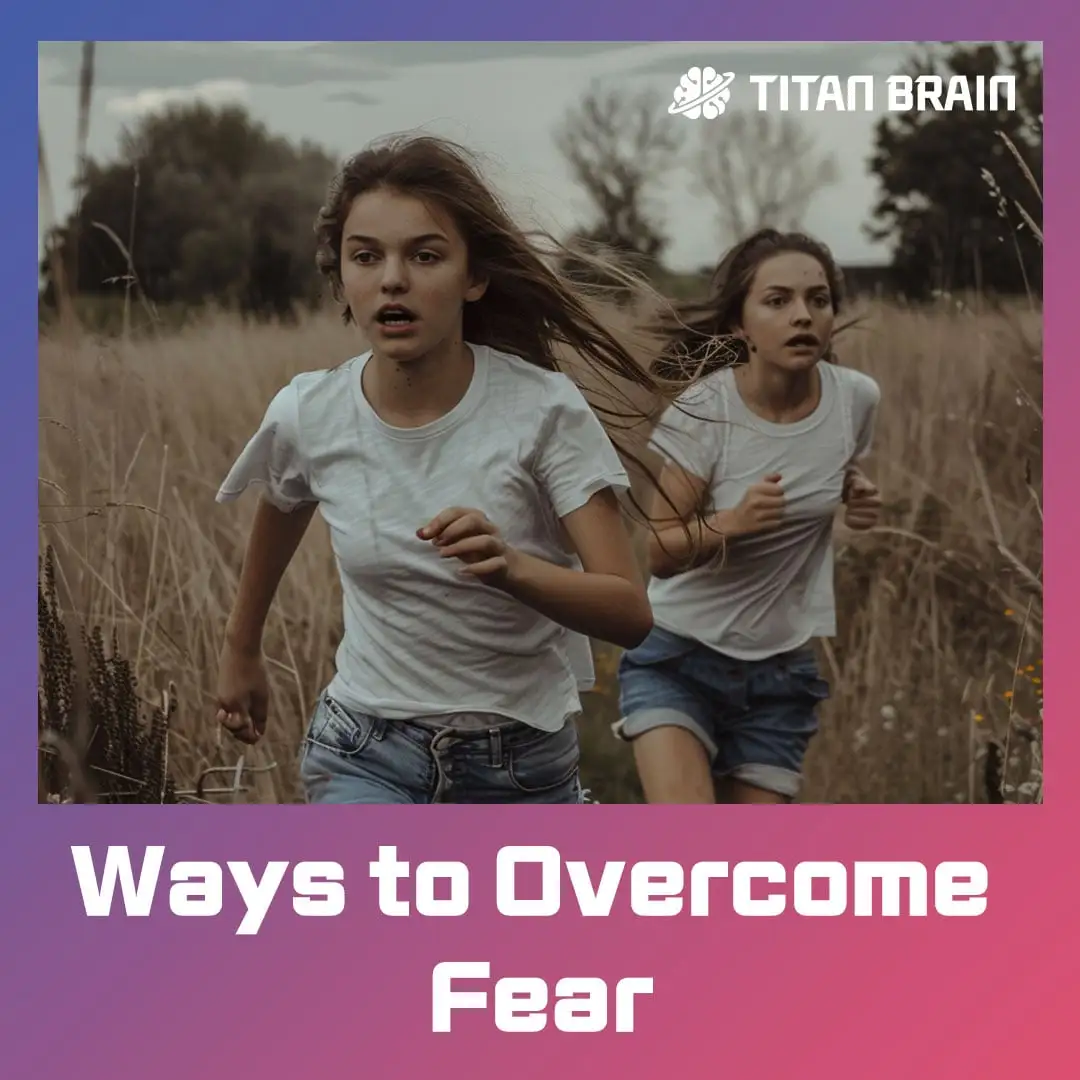Let’s explore Ways to Overcome Fear. Fear is a reaction originating from feelings of anxiety, often manifesting as worries about the future. If you live with fear, you may find yourself avoiding what scares you, which can prevent you from living the life you desire. Let’s discuss what fear is and what Ways to Overcome Fear are available.
1. The Necessity of Ways to Overcome Fear
In primitive times, human survival environments were harsh. People could be eaten by predators, suffer from food shortages, or face extinction from being ostracized by their tribe or failing to find a mate.
In modern society, survival demands are not as high as in prehistoric times, but the biological fear of failure from those times continues, leading us to experience fear without realizing it.
If you don’t know Ways to Overcome Fear, you might limit the experiences you can have in life, and mastering these methods could be crucial for living the life you desire.
1) What is fear?
Fear, in dictionary terms, means a feeling of being afraid, associated with anxious emotions.
It is an emotional response that can occur when one perceives danger or threat, whether the danger or threat is real or not.
Fear can also be referred to as terror, and in modern psychology and psychiatry, efforts are made to change beliefs and behaviors to manage terror.
2) Rave Mehta
Rave Mehta, a researcher of fear, is an American entrepreneur, engineer, and educator.
He states that negative emotions like anger, jealousy, anxiety, guilt, shame, and greed stem from fear, while positive emotions like confidence, humility, courage, gratitude, and dignity arise from belief.
Thus, if humans can manage fear and belief, they can possess a powerful tool for life. Below, we will explore the Ways to Overcome Fear as discussed by Mehta.

2. Ways to Overcome Fear
Ways to Overcome Fear include showing vulnerability, focusing on the present, preferring flexibility over rigid attachments, and recognizing the emotional pyramid.
1) Showing Vulnerability
One of the first Ways to Overcome Fear is to show your vulnerability. Rave Mehta argues that if you believe showing vulnerability isn’t painful, you can change.
Many people build defenses to avoid getting hurt by hiding their true emotions, but this can actually increase fear, and showing vulnerability is a much better approach.
Acknowledging vulnerability can make a person stronger, and showing weakness during tough times can be a way to recover more easily.
Tip) Don't try to defend yourself. Just show who you are!
2) Time: Focusing on the Present
The second of the Ways to Overcome Fear is to stop worrying about the past or the future and concentrate on the present.
Fear can arise when not focusing on the present. It often appears in the form of ‘what if’ questions, worrying and imagining situations that could pose threats in the future.
If you focus on the present, fears about the future cannot manifest, and you can experience a state of immersion in the current moment.
Tip) To focus on the present, turn off any distracting electronic devices, and mindfulness meditation can be helpful.
3) Attachment: Needing Flexibility
The third of the Ways to Overcome Fear is to avoid rigid attachments and embrace flexibility.
Attachments, meaning to love or be drawn to something so much that you can’t part with it, can have negative connotations.
Buddhism advises against overly liking or disliking anything. However, Rave Mehta argues that there is nothing wrong with attachments per se, but the nature of the attachments can be problematic.
According to Mehta, there are flexible and rigid attachments; flexible attachments allow for closeness and distance within relationships, whereas rigid attachments tend to control.
Tip) Don't try to control everything for what you want. Just let your desires be free!
4) Expectations
The fourth way among Ways to Overcome Fear is to not hold expectations but to choose preferences instead.
The dictionary definition of expectation is waiting for something to happen in the way one desires. However, Mehta defines expectations as a psychological fixation on a specific level of outcome based on effort.
Expectations can easily crumble and create negative outcomes. Even if you achieve what you expected, it can be underwhelming because it was already anticipated, and not achieving desired results can lead to disappointment, anger, guilt, and shame.
This doesn’t mean you shouldn’t dream of results or goals, but instead of expectations, you can choose preferences. Changing from expecting something to preferring it can solve the problems that arise with expectations.
If you prefer, you will be very happy when you achieve the desired result, and you won’t be too disappointed if the opposite happens.
Tip) Instead of saying "I need this," try saying "I want this."
5) Emotional Pyramid
The fifth way among Ways to Overcome Fear is to look into your emotions using the emotional pyramid described by Dave Asprey.
Dave Asprey talks about sub-emotions that we feel before we even get to emotions related to fear, and knowing this concept can help us understand our current state.
Unconsciously, we may first respond with indifference and shame, and then sadness, anger, and pride, followed by fear, happiness, and freedom.
Our bodies, prioritizing survival, might lead us to indifference and shame first, but we must examine our sadness, any hurts in our pride or anger, and then look into our fear.
We shouldn’t get accustomed to human responses that have been prioritized for survival since primitive times. In a state of reacting to threats, we should stop and make an effort to find gratitude.
Regular practices that foster forgiveness, gratitude, and compassion can also help. If you can clear away all your fears, you will achieve happiness and freedom.
Tip) Try writing a diary every day, noting not the misfortunes of the day but the failures. Feeling failure means you've tried your best. Praise yourself for taking risks and making an effort.

3. Author’s Thoughts
Emotions of fear can vary from person to person, and I believe this unease is linked to the beliefs we hold. Various psychological therapies refer to these beliefs with terms like unconscious, core beliefs, and schemas.
In cognitive-behavioral therapy, which is a foundation of modern psychological therapy, the beliefs about oneself, others, and the world are formed from an early age based on one’s temperament and the influence of parents and the environment, and these beliefs shape various thoughts and emotions.
But when these beliefs are formed in an excessively distorted way, they can generate negative thoughts and emotions, leading to depression, anxiety, anger, etc. Fear can ultimately be seen as a form of anxiety.
If you’ve had severe anxiety due to distorted beliefs about yourself, others, and the world since childhood, and it’s difficult to train alone, I recommend trying cognitive-behavioral therapy, schema therapy, and mindfulness meditation!

4. Conclusion and Q&A
We have explored Ways to Overcome Fear. Living with fear can often lead to experiencing negative emotions. To eradicate fear, it is essential not to hide your vulnerabilities, to focus on the present, and to avoid excessive attachments and expectations. Below are some frequently asked questions and key points.
1) What is fear?
Fear can be interpreted as a feeling of dread or terror, typically an emotional response that occurs along with anxiety about the future. Excessive fear can lead to an anxiety disorder.
2) What are Ways to Overcome Fear?
Ways to Overcome Fear include not hiding but showing your vulnerabilities, immersing yourself in the present, letting go of attachments, preferring instead of expecting, and recognizing your emotional state through the emotional pyramid.
3) Are there recommended practices related to overcoming fear?
To show your vulnerabilities, it’s helpful to check in with yourself regularly. Writing a daily diary can assist in this.
To focus on the present and let go of attachments and expectations, mindfulness meditation can be beneficial.
Please refer to the articles below for training on overcoming fear, including cognitive-behavioral therapy and mindfulness meditation!
► Reference Sources and Recommended Reading
[Book] Game Changers – Dave Asprey / Business Books Publishing
[Book] Why Mindfulness Meditation? – Jon Kabat-Zinn / Bulkwang Publishing
– Be the Titan Brain


